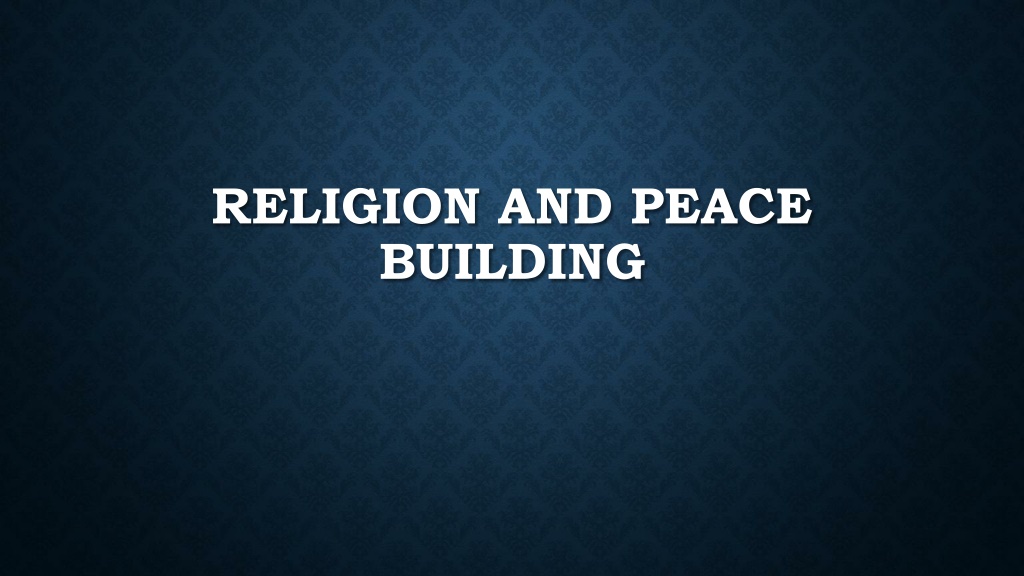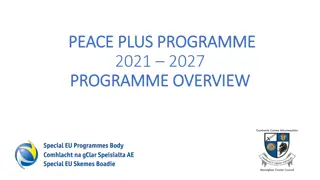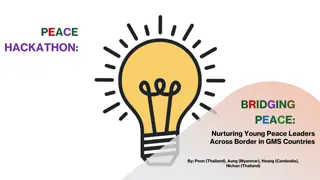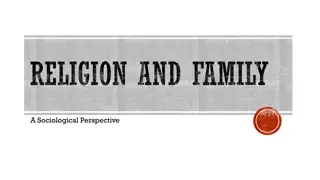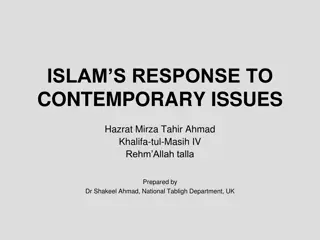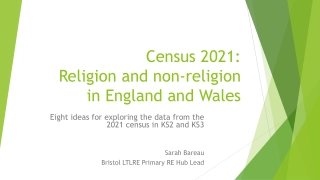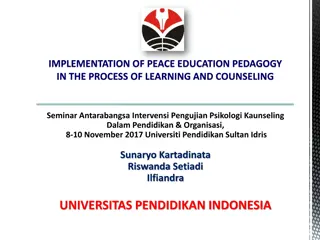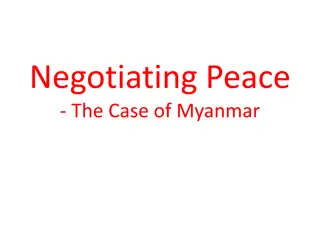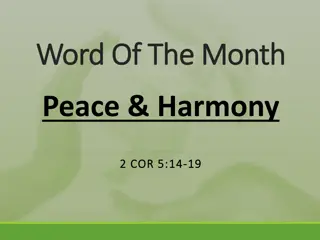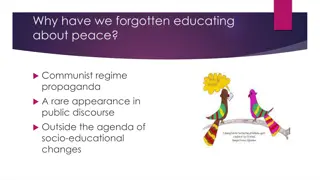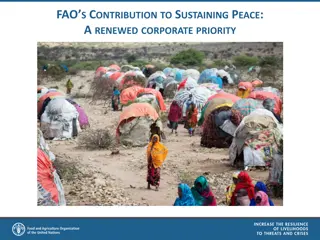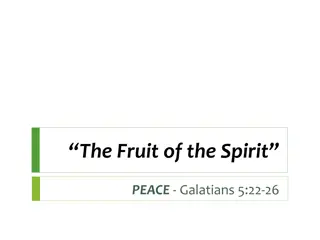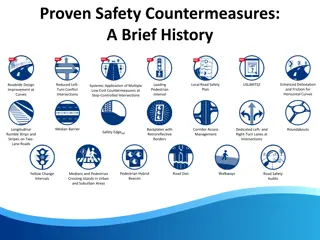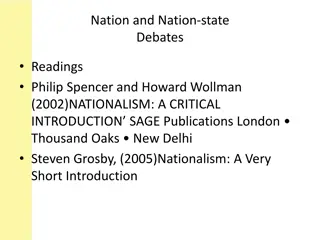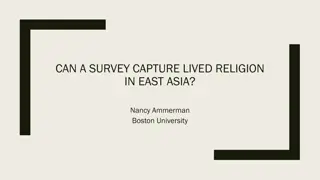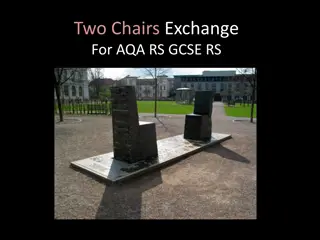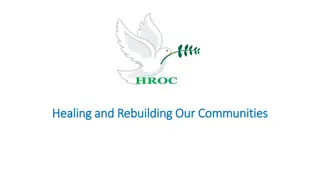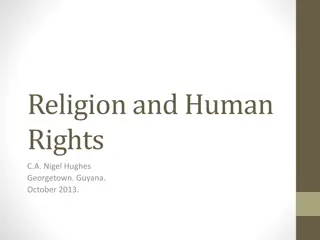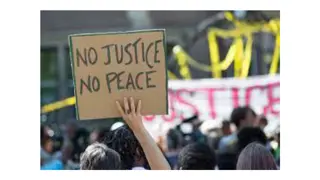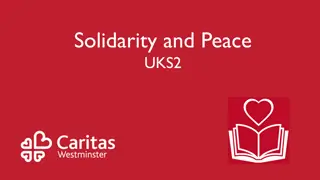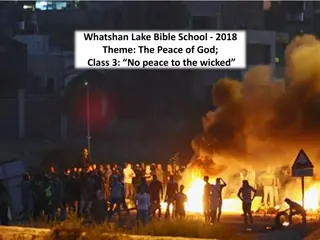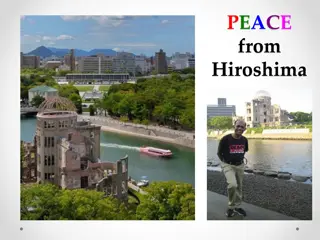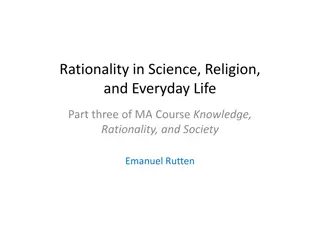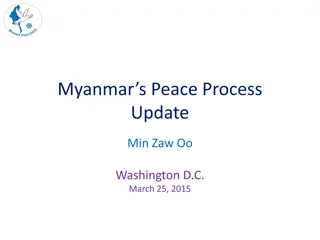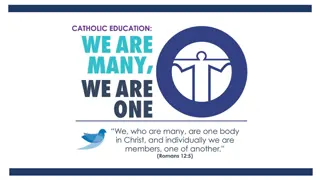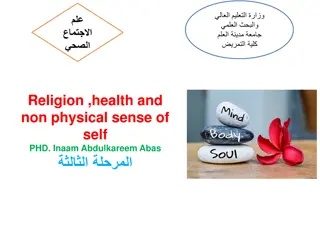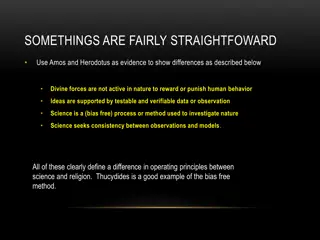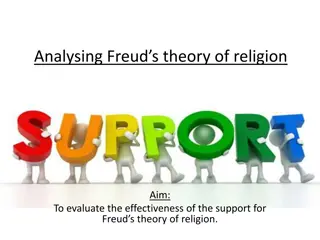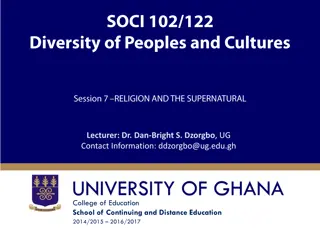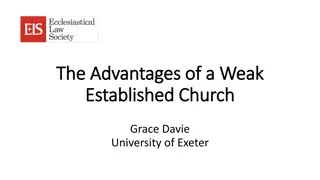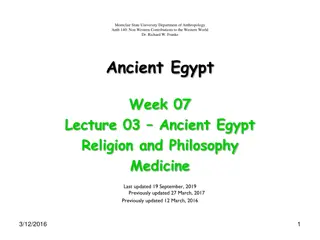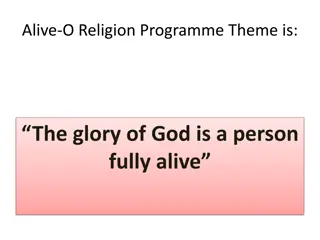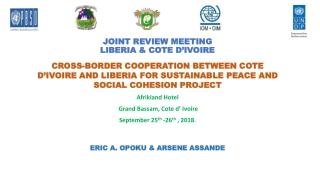Religion and Peace Building: Intersections, Impacts, and Practices
Exploring the intersection of religion and peace building, this article delves into how religious teachings, spirituality, and values play a crucial role in promoting peace and reconciliation. It discusses the concept of peace building defined by UN Secretary-General Boutros Boutros-Ghali, the role of religious values in supporting rituals and healing processes, and how spirituality acts as a general support to peace building efforts.
Download Presentation

Please find below an Image/Link to download the presentation.
The content on the website is provided AS IS for your information and personal use only. It may not be sold, licensed, or shared on other websites without obtaining consent from the author. Download presentation by click this link. If you encounter any issues during the download, it is possible that the publisher has removed the file from their server.
E N D
Presentation Transcript
RELIGION AND PEACE BUILDING
WHAT IS PEACE BUILDING UN Secretary-General Boutros Boutros-Ghali narrowed the term in his 1992 Agenda for Peace. Bringing the weight of international attention to peacebuilding, Boutros- Ghali associated it with post-war reconstruction. He defined post-conflict peacebuilding as actions to identify and support structures which will tend to strengthen and solidify peace in order to avoid a relapse into conflict.
Peace In The Main Religious Teachings Religion is a powerful constituent of cultural norms and values. Because it addresses the most profound existential issues of human life (e.g., freedom and inevitability, fear and faith, security and insecurity, right and wrong, and sacred and profane), religion is deeply implicated in individual and social conceptions of peace. Religion has also developed "laws and ideas that have provided civilization with cultural commitments to critical peace-related values, including empathy, an openness to and even love for strangers, the suppression of unbridled ego and acquisitiveness, human rights, unilateral gestures of forgiveness and humility, interpersonal repentance and the acceptance of responsibility for past errors as a means of reconciliation, and the drive for social justice."
Spirituality as A General Support To Peacebuilding Spirituality as a general support to peacebuilding. Religion can bring social, moral, and spiritual resources to the peacebuilding process. In particular, the transformative approach to peace holds that "personal transformation--often through spiritual work-- radiates outward and affects peace on every level from the intrapersonal to the international world of peacebuilding and conflict resolution."31 For instance, the Yogic and Buddhist spiritual traditions provide tools such as yoga, meditation, mindfulness, and the cultivation of equanimity and compassion for becoming more centered peacebuilders who can embody peacefulness in personal and work contexts.
RELIGIOUS VALUES SUPPORTING RITUALS, HEALING, AND REINTEGRATION PROCESSES Religious values often support rituals"healing and reintegration processes that play key roles in the broader psycho-social recovery of local communities. Indeed, "in the narratives of victims and survivors [of violence] the religious, cultural and symbolic dimensions of the violence form an integral part of the violation of their rights and of their emotional experiences.
RELIGIOUS VALUES SUPPORTING RITUALS, HEALING, AND REINTEGRATION PROCESSES In various recent conflicts, symbolic rituals have been developed, for instance in the form of peace walks. Examples include the Israel Walk Project, in which, "people of various religious orientations walk in single file through Arab villages and kibbutz or moshav Jewish communities, through city neighborhoods, and along highways to demonstrate a witness for peace through walking meditation. The group has organized several walks, with both local and national media coverage In Cambodia, the Dhammayietra peace walk (literally, a "Pilgrimage of Truth") follows a similar mode
RELIGIOUS ACTORS AND PEACE BUILDING Social scientists have highlighted a variety of modes of intervention of religion in a society and functions it is able to carry out: A function of mobilization (in a conflict, but also for peace). Religious actors contribute, in particular, to shaping people's views of the world and their basic values. A function of socialization through education and training, both at the level of the elites, in particular for well-established religions, and the poor. A function of integration of those excluded by the society, in particular through humanitarian aid and socio- economic development projects"something that directly contributes to the rebuilding of the socio-economic fabric of a post-war society. A function of substitution for political and partisan-type organizations, in particular in times of crisis or closure of the political space. This function is often allied to a role of popular forum and/or political advocate (in particular on topics related to the respect of human right
